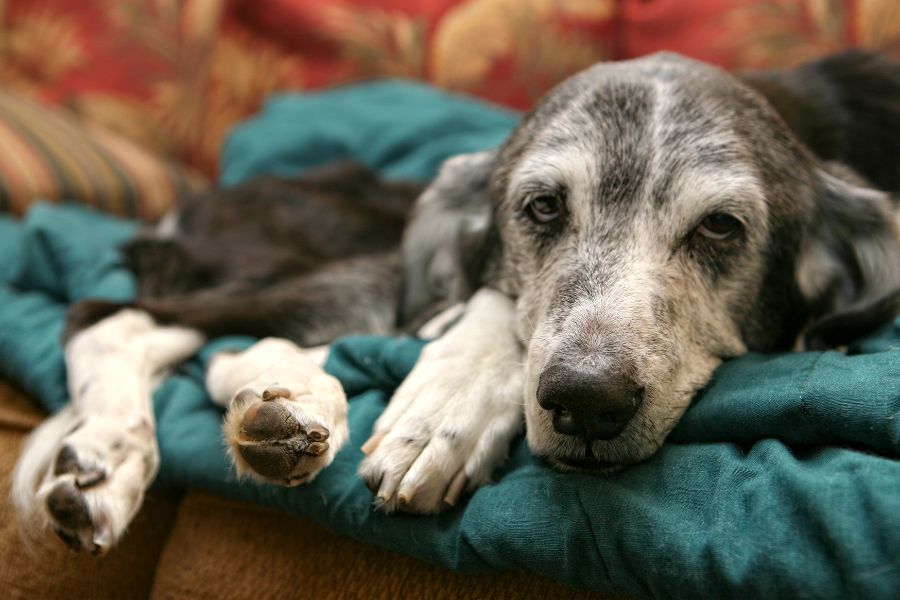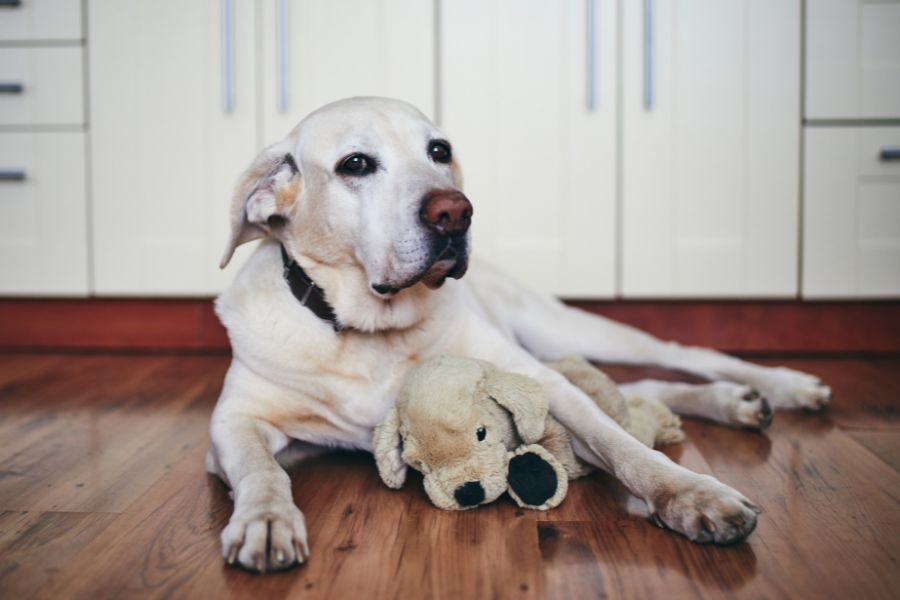All of us who love our doggies agree on one thing: their little life should be forever! However, eternal are just the footprints they leave in our hearts, even in a life as short as theirs. And as our dear friends get old, their food needs change, and we can’t afford to let go. Food for senior dogs is fundamental at this stage, helping to face joint, digestive, and health problems in general. A senior dog needs special care to ensure quality of life and well-being. In this article, we are going to talk about the importance of food for senior dogs, highlighting all the benefits and guiding you on how to offer a balanced and nutritious diet for your beloved pet in old age.

When is a dog considered senior?
We know that dogs can be considered senior between seven and ten years old, depending on their breed and size. It is important to emphasize that the aging process is not the same for everyone and can depend on many things, such as the pet’s health, genetics, and lifestyle. Therefore, it is essential to carefully observe the signs of aging and adapt to the specific needs of your four-legged friend.
As the years go by, dogs age naturally and gradually. This journey affects the animals’ physical and physiological bodies and can affect their health and well-being as time goes by. It is essential to highlight that dog age does not follow a direct ratio to human age. Small breed dogs tend to live longer than large breed dogs. For example, a large dog might be considered senior at age seven, while a small dog might be considered senior at ten.
When caring for a senior dog, it is important to increase attention to its health. Regular visits to the vet are crucial for keeping up-to-date routine exams, managing chronic health issues, and adjusting the diet. In addition, it is essential to provide a balanced diet adapted to the nutritional needs of your older dog.
What changes in providing food for a senior dog?
The senior dogs’ nutrition requires adjustments to meet their needs at this stage of life. Here are some common changes that can be made to the diet of these animals:
1 – Weight management in senior dogs: the metabolism of senior dogs is naturally slower, so they need fewer calories to maintain a healthy weight, doable with fruits like mango. To avoid excessive weight gain, which can overload joints and internal organs, it is essential to adjust the amount of food offered. The vet can help determine the appropriate amount of calories for your senior dog, taking into account their weight, activity level, and physical condition.
2 – Ideal food for senior dogs: Provide a diet that contains specific nutrients to support your dog’s health in old age. This involves high-quality protein to maintain muscle mass, omega-3 fatty acids for the health of their skin and coat, and antioxidants to fight the effects of aging and support their immune system.
3 – Texture and ease of digestion: a senior dog may suffer from dental problems or chewing difficulties due to the natural wear of the teeth. In these cases, it may be necessary to offer foods with softer textures, such as wet or powdered foods, or even a completely ground or pâté diet. Also, easily digestible foods may be more appropriate for older dogs with sensitive digestive systems. Click here and discover the benefits of natural food for your dog’s oral health.
4 – Supplementation for senior dogs: The vet can indicate specific food supplements to meet the individual needs of your senior dog. Chondroitin and glucosamine can improve joint health and antioxidants can strengthen the immune system.

Food for senior dogs: How to provide it?
Your faithful friend deserves enough food to stay healthy. But as they get older, dogs can lose their appetite and not eat enough. This can lead to serious nutritional issues. To avoid this, maintain a well-defined food routine, with regular time and portions. Divide the food into two or three portions a day, at spaced times, to encourage your dog to eat more. Take good care of your friends so that they continue with a healthy and happy life.
To ensure your pet’s health, it is essential to pay attention to the portions of meals and respect their nutritional needs. The vet is the one who will help define the ideal amount and frequency. In addition, changing the food should be done gradually and following the professional or manufacturer’s guidelines. Thus, you avoid gastrointestinal problems and even food refusal.
How to determine the optimal food for your senior dog?
Taking care of food for senior dogs is crucial to extending its life and keeping it comfortable. This means providing an adequate diet with carefully balanced nutrients. Invest in your pet’s nutrition to ensure healthy and happy aging.
To ensure proper nutrition for your pet, it is important to work with a vet or nutritionist who is responsible for their care. Only they know to determine your pet’s specific nutritional needs based on physical and laboratory exams.
Conclusion
Any healthy dog, regardless of age, can follow the natural diet, raw or cooked. And that includes senior dogs. Discover how to feed your best friend healthily and naturally.







